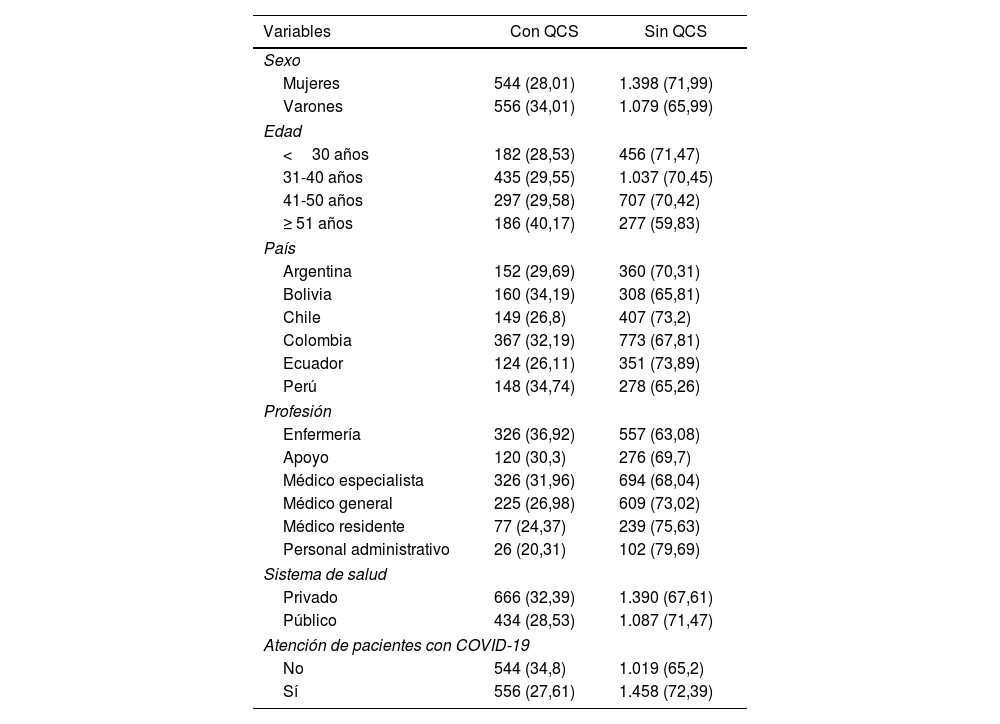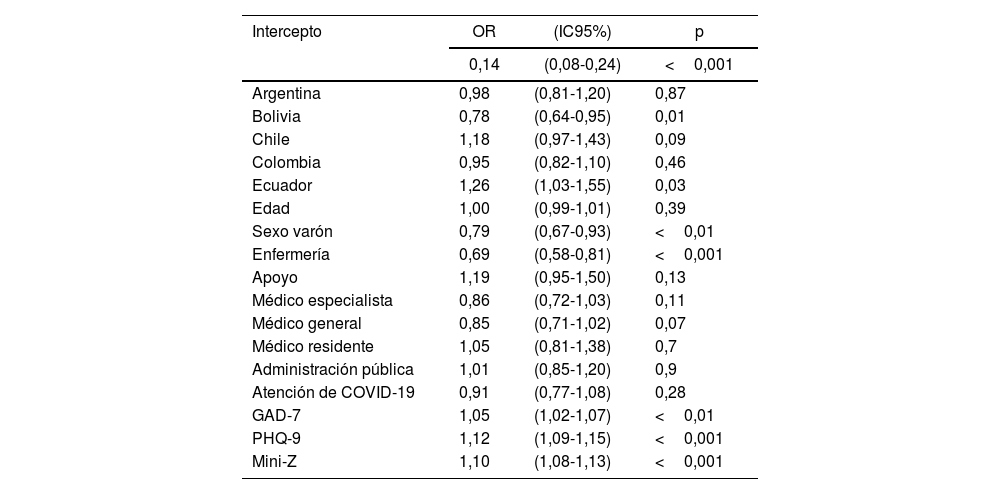Se ha observado un incremento de alteraciones emocionales y quejas sobre el rendimiento cognitivo en el personal sanitario latinoamericano durante la pandemia de SARS-CoV-2; lo cual puede afectar a las capacidades de atención y aumentar los niveles de estrés y burnout de estos profesionales. El objetivo es analizar las quejas cognitivas subjetivas (QCS) y los factores asociados en el personal sanitario durante la pandemia de COVID-19 en 5 países de América Latina.
MétodosEstudio transversal multicéntrico que incluyó a 3.738 profesionales de Colombia, Chile, Argentina, Ecuador, Bolivia y Perú. Se utilizó la Escala de Trastorno de Ansiedad Generalizada (GAD-7) y el Patient Health Questionnaire (PHQ-9) para valorar la depresión y el Mini-Z para evaluar el burnout. Para las QCS se usó un ítem sobre preocupaciones cognitivas en atención y memoria.
ResultadosSe observó una prevalencia de queja cognitiva del 69,2%. Los factores asociados con un mayor riesgo de QCS fueron las puntuaciones en GAD-7, PHQ y Mini-Z, además de ser parte del personal de salud del Ecuador.
ConclusionesLa prevalencia de QCS en el personal sanitario es alta y está modulada por estados emocionales y estrés.
An increase in emotional disturbances and complaints about cognitive performance has been observed in Latin American healthcare workers during the SARS-CoV-2 pandemic, which can affect attention capacity and increase the levels of stress and burnout of these professionals. The objective was to analyse subjective cognitive complaints (SCC) and associated factors in health personnel during the COVID-19 pandemic in five Latin American countries.
MethodsMulticentre cross-sectional study, which included 3,738 professionals from Colombia, Chile, Argentina, Ecuador, Bolivia, and Peru. The Generalized Anxiety Disorder Scale (GAD-7) and the Patient Health Questionnaire (PHQ-9) was used to assess depression, and the Mini-Z to assess Burnout. For the SCC, an item on cognitive concerns in attention and memory was used.
ResultsThe prevalence of cognitive complaints was 69.2%. The factors associated with a higher risk of SCC were the scores in the GAD-7, PHQ and Mini-Z, in addition to being part of the Ecuadorian health personnel.
ConclusionsThere is a high prevalence of SCC in health personnel, which is modulated by emotional states and stress.







